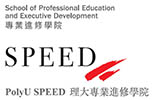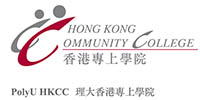雙語社評齊齊聽
[英語 (足本收聽)] Presented by CHENG, Yu-ting Joyce, Lecturer of Hong Kong Community College, The Hong Kong Polytechnic University
[普通話 (足本收聽)] Presented by Dr JIAO, Nina, Lecturer of Hong Kong Community College, The Hong Kong Polytechnic University
The government has adjusted its policy for recruiting local university graduates, allowing university students in their third year to apply for government jobs, i.e., one year earlier than the current practice. Given the short supply in Hong Kong's job market, the government has to scramble for talent the way private enterprises do.
In the past, only large-scale private companies would employ university students who had not graduated. It remains to be seen whether the government's latest recruitment arrangement can attract more outstanding university students. But It, at least, shows that the authorities have the will to compete with large enterprises for talent. At the same time, the authorities should step up the reform of the civil service to change the officialdom's bureaucratic and conservative culture.
For any kind of organisation, talent is the most valuable asset. Universities are the cradle of talent. Every year the SAR government receives hundreds of thousands of job applications. On average 10,000 people are hired as civil servants each year, most of them young people. However, in recent years, the number of people applying for positions in the civil service has indeed continued to fall. To compete for talent, the government must be more proactive. The recruitment arrangement announced yesterday (1 June) by Ingrid Yeung, the Secretary for the Civil Service, is a new attempt.
In the past, in the recruitment process, usually the government only considered fresh graduates or those who had obtained relevant academic qualifications. However, under the new measures, different government departments can consider accepting the application of students who are in their third year or will move into the third year depending on the department's needs. In other words, students who are about to graduate in 2024 and 2025 can apply for government positions earlier. The government will issue a "conditional offer notice" to suitable candidates. As long as they meet the conditions, such as the completion of their studies within the specified time, they can join the government after graduation.
Ingrid Yeung has described the new measures as a "win-win" situation for three sides. First, young people who aspire to join the government can make career plans in advance. After receiving a conditional offer, they can be more focused on their studies and equipping themselves. Second, universities can better assist these students in planning and preparation. Third, the government can get closer to market changes and hire outstanding university students as soon as possible.
In recent years, the government has indeed made some efforts to improve the standards and abilities of civil servants. For example, it has established a Civil Service College to strengthen training and arrange for more civil servants to go to the mainland for exchanges so as to deepen their understanding of China and pave the way for Hong Kong to integrate into the overall development of the country. However, when it comes to improving the standards of civil servants, cognitive enhancement is not sufficient. It is even more important to reshape the culture of officialdom and form an atmosphere of being connected to the grassroots, down-to-earth and willing to achieve.
In order to reform the civil service, rewards and punishments must be clearly defined. Promotions should be based on performance and merit rather than seniority. The salaries of middle-level and senior civil servants should be linked to their performance. If the authorities do not have a proactive civil servant appraisal system, problems such as bureaucracy, mediocrity, idleness and civil servants occupying their positions for the sake of them will only continue to accumulate. Young talent will shy away from joining the government.
政府新招搶新血 官僚改革不可少
政府調整招聘本地大學畢業生的政策,大學三年級生也可提早1年投考。本港就業市場緊張,除了私人企業,政府也要「搶人才」。
以往通常只有較大規模的私人公司,才會提早錄用仍未畢業的大學生,政府最新招聘安排,能否吸引更多優秀大學生人才加入,仍得拭目以待,但至少反映當局有跟大企業爭人才的意志。與此同時,當局亦要加緊推動公務員改革,改變官僚因循保守文化。
對任何機構而言,人才都是最寶貴資產,而大學正是人才的搖籃。特區政府一年收到數十萬份職位申請,平均每年有1萬人獲聘用為公務員,當中大多為青年人,惟近年公務員職位申請人數,確有持續減少之勢,政府搶人才,必須更積極。公務員事務局長楊何蓓茵昨天公布的招聘安排,是一次嶄新嘗試。
以往政府招聘時,通常僅考慮應屆畢業生或已取得相關學歷人士,但在新措施下,政府各部門可視乎自身需要,考慮於今年起接納大學三年級或將升讀三年級的學生投考公務員,即2024及25年的畢業生,亦可提前投考,政府將向合適者發出「有條件取錄通知書」,只要符合在指定時間內完成學業等條件,便可於畢業後投身政府。
楊何蓓茵形容,新措施可達至「三贏」,第一,有志加入政府的青年,可提早做好職業生涯規劃,獲有條件取錄後,可更專注學業及裝備自己;第二,大學院校可更好協助相關同學做好規劃及準備;第三,政府可以更貼近市場變化,盡早網羅大學優秀人才加入。
這幾年,政府在提升公務員水平和能力方面,確有下一些工夫,例如成立公務員學院加強培訓,以及安排更多公務員到內地交流,加深對國情了解,為香港融入國家發展大局鋪路,等等,然而提升公務員水平,單是認知上的增進,並不足夠,更重要是重塑官場文化,形成貼基層、接地氣、肯做事的氛圍。
公務員改革,必須明賞罰,升遷要講表現、重實績,而非論資排輩;中、高級公務員的薪酬,更應該與工作表現掛鈎。當局若沒有一套積極進取的公務員考核制度,官僚主義、庸碌懈怠、尸位素餐等問題只會繼續積累,年輕才俊對於投身政府,也將敬而遠之。
明報社評 2023.06.02









